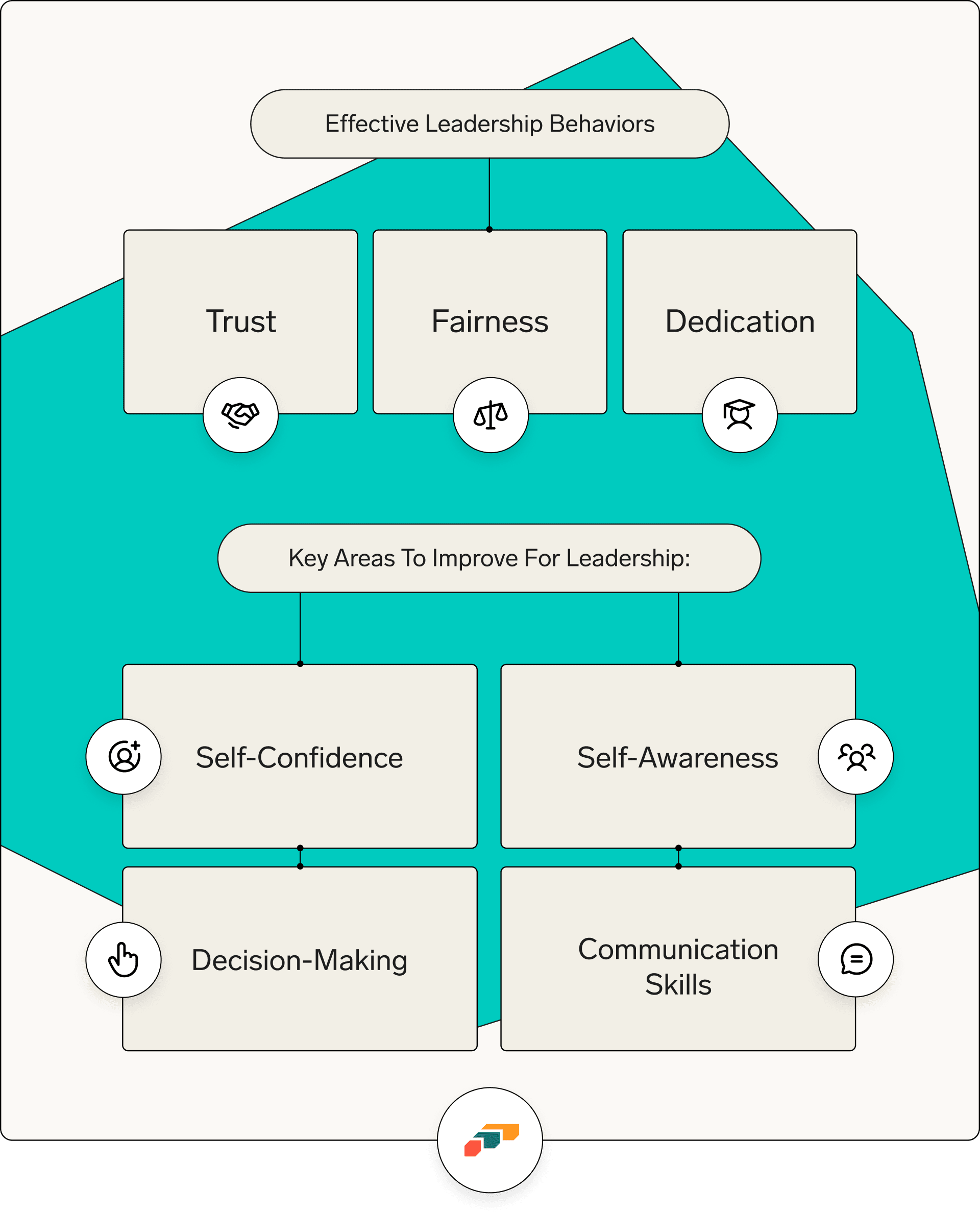How To Improve Employee Motivation in the Retail Sector
Get an insight into what retail workers, managers, and the human resources team can do to ensure job satisfaction and motivation in retail businesses.
- 18 Jun 2024
- Max 7 min read
The Number One HR Solution on Salesforce
Leadership is an essential element of any successful organization. It’s not only the traits and skills that great leaders possess but also the actions they take that set them apart from average managers. Charisma, humility, and a sense of humor are all qualities that can help contribute to strong leadership. But other qualities such as problem-solving, work ethic, and patience can be developed with practice and dedication.
Leaders have the capacity to inspire greatness in others and bring out the best in their teams, even during difficult times. By taking positive steps to promote team morale, encourage retention, and lead by example, any leader can leave a lasting impact on their colleagues.
However, according to DDI’s 2023 Global Leadership Forecast, only 40% of survey respondents considered their company’s leaders to be of “high quality”. This crisis of confidence in leadership is an opportunity for existing and aspiring leaders alike to work on developing key leadership behaviors to achieve success and cultivate an inspiring workplace.
Whether you are an HR executive looking for tips on empowering your top-level managers to do their best work or you’re a promising future leader, we have the resources for you.
When you think of amazing leaders like Barack Obama, Mary Robinson, or Nelson Mandela, it might be hard to picture them before they became who they are today. It’s easy to believe that they were born with great leadership traits, but this couldn’t be further from the truth.
Every leader has gone through a long process to develop resilience, humility, empathy, and accountability – traits that all make up a powerful, inspiring leader. There isn’t one single factor that makes someone successful; instead, it’s the combination of them all.
With the right support system and mentality, anyone can develop effective leadership behaviors. It takes time, effort, and dedication to listen to employees and create an environment where everyone feels comfortable and motivated. Good leaders can inspire groups of people, but great leaders? They can ignite real change.
Successful leaders don’t just embody leadership behaviors at the office, they demonstrate them in their personal lives too.
An effective leader is someone who always aims to lift others up, it isn’t someone who clocks out as soon as their shift ends or does the bare minimum. The best leaders treat their responsibilities as a round-the-clock job, so if you’re hoping to polish your leadership skillset be prepared to dedicate some serious time, effort, and energy to the cause.
Though there are countless qualities and practices that you should work on to become the best leader you can be, all strong leaders make a conscious effort to integrate the following practices into their leadership strategy.
One of the most attractive things about being a leader is the opportunity to inspire a wonderful team to look up to you, pursue their own projects, ace their own goals, and become the very best that they can be.
Motivational leaders are passionate about creating an environment that fosters belonging and connection. They work hard to ensure their team feels supported and appreciated, celebrating victories as they come. True leaders have the ability to see beyond the present and use their vision of success to bring the team closer together.
As a leader, it’s important to remember that in order to effectively motivate and inspire your team, you must also cultivate and nurture your own skillset. After all, if you want your team to reach new heights, you have to climb as well!
Think of it like this – when the airline staff tells you to secure your own mask before helping others, the same applies here. You need to strike a balance between self-development and communal progression. After all, leading by example is one of the best ways to show employees what can be achieved with hard work, dedication, and focus. When you concentrate on your own growth and aim for excellence, you set an example for others to follow. This sets a positive tone for the entire team and boosts everyone’s performance. Those high standards you set for yourself will have an overall positive impact on team performance, so keep striving for greatness!
Highly effective leaders recognize the importance of employee retention as a key sign of successful team-building. One way to boost your company’s retention rates is by investing in your employees’ development.
A supportive manager should be interested in their employees’ individual goals and how those goals relate to the big picture. When managers take an active role in fostering successful relationships with employees, there is a greater likelihood of creating a shared vision that is based on mutual respect, trust, and continual growth.
The most successful leaders make sure their team members’ personal objectives are in harmony with group efforts and company values. Doing so creates an environment that allows everyone to thrive together and feel fulfilled. Moreover, a great manager checks what team members need and provides a mockup generator to its graphic designers and analytics and reporting solutions for the marketing team.
While having a plan is important, embracing your mistakes is also key if you want to guide a team to success.
No matter your leadership capabilities you will undoubtedly encounter hiccups, failures, and roadblocks on your route to success. A successful leader understands that failure doesn’t define them – instead, they adapt and look at their failures as opportunities to learn and grow.
Sure, failure is disappointing, but if you want to lead a group of people to greatness, it’s important to never let it discourage you. It’s also critical that you don’t take your fear or frustration with mistakes out on your team members, otherwise, you risk losing their trust, their respect, and ultimately, their employment. You know what they say – people don’t quit jobs, they quit managers – and if you’re taking your disappointment out on your employees that’s a surefire way to make them give up on you.
Successful leaders don’t just take failure on the chin, they embrace it. They aren’t afraid of losing small battles because they understand that good leadership and teamwork are lifelong learning processes. They use their mistakes as opportunities to further better their mindset and fine-tune their decision-making abilities.
While there may be times when difficult choices are needed to reach our objectives, it is never alright to sacrifice your ethics for any result – especially if you are a leader. Calculated risk-taking can reward you in business, but always stay true to your principles and values as a team.
The best leaders think about the ethical implications of their decisions and how this might affect their team. To accomplish this, we suggest working on compassionate management and building your emotional intelligence.
Compassionate management encourages leaders to understand what drives their workers, as well as their weaknesses and strengths. It also helps make workplaces less stressful, anxious, and tense.
Through practicing compassionate management, you can make excellent decisions that will benefit not just yourself but your entire company.
Respected leaders are master communicators. They aren’t afraid to address any situation and understand that effective communication skills are vital to building a strong, healthy, happy team.
Although we generally see public-facing leaders at the forefront of their teams, you can be sure that behind the scenes they are practicing their listening skills just as much as their speaking ones. The best leaders understand that listening and being quiet are sometimes more powerful than being loud.
Active listening requires you to truly hear where someone else is coming from. It is a skill that should be practiced regularly within your team so that your teammates understand that you’re dedicated to their feelings, goals, and dreams just as much as you are to yours.
In addition to practicing the above-mentioned leadership behaviors, it’s vital that you adopt a certain mindset if you want you and your team to thrive. Among others, successful leaders make a conscious effort to embrace the following values throughout their leadership development:
It’s important to practice behaviors that show your team you’re trustworthy. Building trust takes time and effort, but trust can be lost in an instant. Show your team you trust them by delegating responsibilities and giving them the freedom to work independently. This not only demonstrates your trust in their competencies, but also empowers them to take ownership of their work and make decisions on their own.
As a leader, it’s important to be fair. Lifting each other up, rather than tearing each other down, is key for any team. That’s why focusing on empowering the group and offering helpful advice should be your top priority. Acknowledge the successes of the team, recognize individual contributions, and provide positive feedback whenever possible. Ultimately, team spirit and enthusiasm will be the result of a leader who fosters an environment of mutual respect and support.
Great leaders are adept at problem-solving. They’re smart, resourceful, and enthusiastic when it comes to their work and those they lead. They won’t let any challenge stand in their way and will go out of their way to make sure that the people around them succeed.

As the team leader, your energy and engagement set the tone for your team. If you feel unmotivated or directionless, it’s likely that your employees could be feeling the same way too. That’s why it’s important to take time to focus on developing your leadership skills, so you can help further improve both your own capabilities and those of your team.
If you’re looking to become an even better leader, focus on the following key areas:
Having high self-confidence means that you are comfortable in your own skin and have faith in your ability to create the life you want. People with low confidence can often get stuck in their unhelpful thoughts or fall apart when things get tough. A major part of becoming a confident leader is having enough self-assurance to take risks and remain resilient through any challenge.
Self-awareness refers to the ability to focus on yourself and your actions. In a professional context, having a keen sense of self-awareness is important because it means that you can interrupt your actions and feelings, and think objectively.
Having great decision-making skills means that you are adept at sieving through multiple options and choosing the one that best suits your goals and objectives. Of course, as a leader, it’s important that the option you choose doesn’t just match your personal objectives, but also the goals of your team.
Communication skills are so important to have as a leader! Being able to understand, empathize with, and share feelings makes all the difference in cultivating a team that trusts and works together harmoniously. Active listening, being able to articulate thoughts clearly, and understanding body language are great communication strategies for leaders. Ultimately, effective communication helps to ensure the success of a team.
Great leaders aren’t just capable of motivating their team in a particular moment, they’re dedicated to guiding them for seasons to come. In today’s world, that means taking charge when everything else in the landscape feels uncertain.
Although new-age leadership is not a new term, it has become increasingly important in recent times as a result of the coronavirus pandemic. It is in reference to the continual need from business leaders to nurture a sense of company culture and teamwork no matter their employee’s work environment or location. Today, a great leader needs to be capable of motivating their employees remotely.
Generally speaking, there are five different types of leadership styles:
Throughout history and business, there has been a range of leadership styles used to direct teams and get things done. We suggest that you take inspiration from the participative, delegative, or transactional styles as they tend to create positive communal atmospheres in the workplace.
Empowerment of employees is essential to fostering a positive company culture. It’s like tending a garden – give your plants the right environment and they will thrive and bloom. In the same way, when you entrust your team with more responsibility, they have the opportunity to grow and flourish in the workplace.
It’s important to note that happy bosses are only as satisfied as their least content employees, so make sure your style of leadership works for everyone involved – not just yourself.

flair helps foster efficient communication and collaboration in the modern workplace and can give leaders a helping hand when it comes to employee development, and giving and receiving constructive feedback. You can set up regular feedback cycles using a variety of different question formats, so you can really customize them to your employees’ different needs.
flair also allows you to define and track company, team, or individual goals, devise evaluation procedures, and schedule regular performance review interviews. What’s more, flair integrates with your favorite tools like Loom, Google Calendar, and more.
And when it’s time to recognize and celebrate your colleagues’ work, flair has got that covered too. By sending Cheers in flair, you can make employees feel valued and boost employee retention – a little appreciation goes a long way!
Find out more about flair and book a demo today!

From being able to communicate effectively with team members to being able to delegate tasks efficiently, there are many key traits that are necessary for effective leadership. Your leadership style can also be improved by embracing new technologies and being more inclusive of diverse perspectives.
As you lead your team toward success, this article can serve as a valuable reference point that you can return to time and time again. Whether you are a seasoned leader or just starting out, there’s always room for improvement.
One thing to keep in mind as you strive towards becoming a successful leader is that it is important to always prioritize the needs of your team members. While it can be tempting to focus solely on your goals and ambitions, ensuring that everyone – not just yourself – benefits, is crucial. By taking a more collaborative and team-oriented approach to leadership, you can create a workplace culture that is more supportive, engaged, and ultimately successful.
Now go achieve great things in your role as a leader!
Join flair’s newsletter to receive the latest tips & trends in the HR world.

